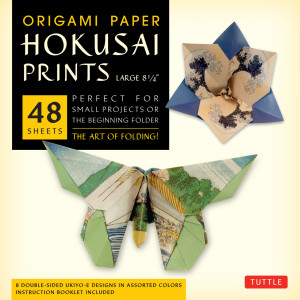 Shortly before the Angel Island Immigration Station in San Francisco Bay was scheduled for demolition in 1970, a California State Park Ranger discovered poems carved in the walls of the former detention center and so began a grassroots movement to preserve the carvings and this vital piece of American history. The first edition of Island was published in 1980 and included translations and transcriptions of most of the station’s carved poems. This new edition–Island: Poetry and History of Chinese Immigrants on Angel Island, 1910-1940, edited by Him Mark Lai, Genny Lim, and Judy Yung, and many years in the making–is a wonderful expansion of an already important work of literature and history. It contains additional poems, greater historical context, and expertly incorporates new research.
Shortly before the Angel Island Immigration Station in San Francisco Bay was scheduled for demolition in 1970, a California State Park Ranger discovered poems carved in the walls of the former detention center and so began a grassroots movement to preserve the carvings and this vital piece of American history. The first edition of Island was published in 1980 and included translations and transcriptions of most of the station’s carved poems. This new edition–Island: Poetry and History of Chinese Immigrants on Angel Island, 1910-1940, edited by Him Mark Lai, Genny Lim, and Judy Yung, and many years in the making–is a wonderful expansion of an already important work of literature and history. It contains additional poems, greater historical context, and expertly incorporates new research.
After passage of the Chinese Exclusion Act of 1882 and its subsequent renewals, Chinese immigrants (and later others as well) had to prove their right to enter the United States. They did so at detention centers and immigration stations like the one opened on Angel Island in 1910 and used for 30 years. While awaiting their immigration hearings, many were detained for days or months while immigration inspectors cross-examined witnesses, examined evidence, and decided their cases. Some of those who were detained carved their thoughts and feelings into the walls themselves, expressing a range of emotions, from hope for the future to sorrow, from camaraderie to despair. The poems are moving and candid.
Island records the entire body of known carvings and inscriptions found at Angel Island. This volume adds poems not included in the first edition, as well as similar poetry found at Ellis Island and an immigration station in British Columbia, Canada (where a similar, though different, kind of immigration restriction was implemented). It also recounts the history of Chinese immigrants and the trials and tribulations faced upon entering the country, using both historical narrative and in-depth oral histories that provide intimate insight into the individual experience.
In shot, Island belongs on the bookshelves of anyone even remotely interested in American history or literature, just as it belongs on the bookshelves of anyone who owns the first edition.



 Microsynopsis: Louis volunteers as coach for Eddie’s basketball team, a group of boys who don’t value team effort. Jessica volunteers as director of Emery and Evan’s school play, despite her disdain for thespian pursuits.
Microsynopsis: Louis volunteers as coach for Eddie’s basketball team, a group of boys who don’t value team effort. Jessica volunteers as director of Emery and Evan’s school play, despite her disdain for thespian pursuits. Bad: Much of the cartoonish nature of the action can be excused by the thematic tribute (hinted at in the episode’s title), but it goes a bit far. Once again, school life is exaggerated so much that it’s practically impossible to see as part of the same television program. Worst of all, while the episode’s set-up is interesting, the execution is uninteresting at best.
Bad: Much of the cartoonish nature of the action can be excused by the thematic tribute (hinted at in the episode’s title), but it goes a bit far. Once again, school life is exaggerated so much that it’s practically impossible to see as part of the same television program. Worst of all, while the episode’s set-up is interesting, the execution is uninteresting at best. 
 Ultimate Origami for Beginners is not your average beginner’s guide. It includes a substantial booklet with easy-to-follow directions for somewhat more advanced beginner items–an oxymoron I realize–but I say that because this is not the cup, the crane, the box. The booklet includes flowers, animals (baby dinosaur, seahorse), airplanes, and dollar folds. Not to worry, though, the instructions are thoroughly illustrated and described. Plus if you’re really stuck, there’s a DVD guide to take you through the steps one-by-one. I would guess that it is more complicated than a small child would want, but difficult and interesting enough for the slightly older (maybe double digits? Per my own history of learning how to fold, that’s at least when I think I might have been ready for these types of designs though of course some are easier). The accompanying paper, in sizes both large and small, also has dollar bill size papers to test out the dollar bill butterfly and yacht designs.
Ultimate Origami for Beginners is not your average beginner’s guide. It includes a substantial booklet with easy-to-follow directions for somewhat more advanced beginner items–an oxymoron I realize–but I say that because this is not the cup, the crane, the box. The booklet includes flowers, animals (baby dinosaur, seahorse), airplanes, and dollar folds. Not to worry, though, the instructions are thoroughly illustrated and described. Plus if you’re really stuck, there’s a DVD guide to take you through the steps one-by-one. I would guess that it is more complicated than a small child would want, but difficult and interesting enough for the slightly older (maybe double digits? Per my own history of learning how to fold, that’s at least when I think I might have been ready for these types of designs though of course some are easier). The accompanying paper, in sizes both large and small, also has dollar bill size papers to test out the dollar bill butterfly and yacht designs.


 Microsynopsis: Jessica gets her first commission, but her superstitions prevent her from cashing the check. Louis cashes it without her knowledge and convinces the boys that a little white lie is better for everyone involved. Eddie runs for sixth-grade president against classmates with better slogans and celebrity endorsements.
Microsynopsis: Jessica gets her first commission, but her superstitions prevent her from cashing the check. Louis cashes it without her knowledge and convinces the boys that a little white lie is better for everyone involved. Eddie runs for sixth-grade president against classmates with better slogans and celebrity endorsements. Bad: No! Bad FotB writers! Bad! Do not combine the done-to-death little-white-lie-important-lesson theme with the overplayed super-sensitive-school-authority-who-calls-CPS plot and the running-for-school-office story! Do not bring celebrity guest stars playing themselves into the story at all, but really don’t do it in the show’s first season! Don’t you know that’s one of the classic shark jumps? Do not write a butthole joke! Do not show us Grandma on the toilet! Cultural remember-this gags are okay, but do not give us Scottie Pippen, Crystal Pepsi, Teenage Mutant Ninja Turtles, and Street Fighter II in the same episode! Do not give us wisdom from the custodian! Don’t give us more Phillip Goldstein, one of the most irritating characters in a half-season full of irritating characters, at all! And for crying out loud, stop making Jessica say, “Aww hell no!” It didn’t work the first five times she said it, and it’s not working now!
Bad: No! Bad FotB writers! Bad! Do not combine the done-to-death little-white-lie-important-lesson theme with the overplayed super-sensitive-school-authority-who-calls-CPS plot and the running-for-school-office story! Do not bring celebrity guest stars playing themselves into the story at all, but really don’t do it in the show’s first season! Don’t you know that’s one of the classic shark jumps? Do not write a butthole joke! Do not show us Grandma on the toilet! Cultural remember-this gags are okay, but do not give us Scottie Pippen, Crystal Pepsi, Teenage Mutant Ninja Turtles, and Street Fighter II in the same episode! Do not give us wisdom from the custodian! Don’t give us more Phillip Goldstein, one of the most irritating characters in a half-season full of irritating characters, at all! And for crying out loud, stop making Jessica say, “Aww hell no!” It didn’t work the first five times she said it, and it’s not working now!
 ial Asian Americans in Visual Culture
ial Asian Americans in Visual Culture









